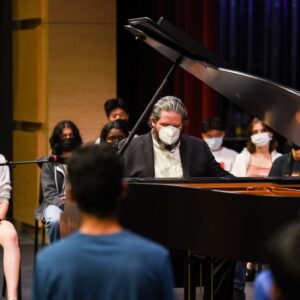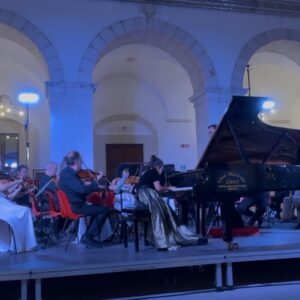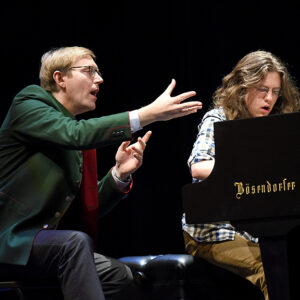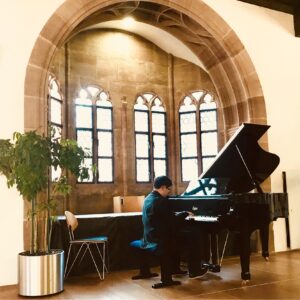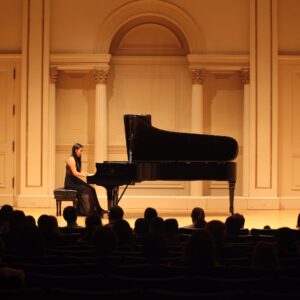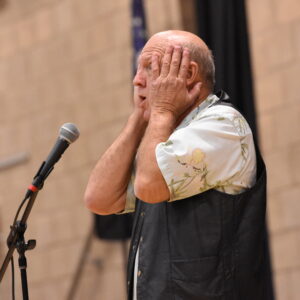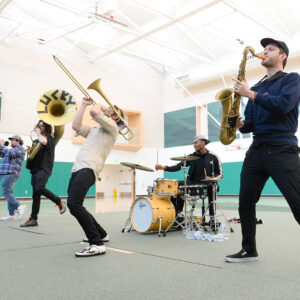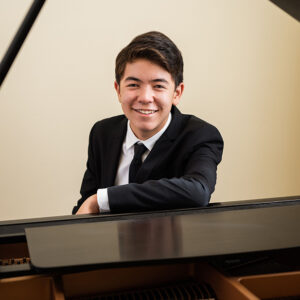Beloved ragtime pianist Bob Milne was the latest guest of the Harker Speaker Series on Jan. 28, performing for the upper school students, faculty and staff at a special morning assembly at the upper school campus gym. Recognized as a leading performer of ragtime and boogie-woogie music, Milne performs about 300 times per year and was hired by the Library of Congress to create reference recordings of famous ragtime songs.
With his piano situated directly in the center of the gym and the students encircling him, Milne told the story of ragtime both through song and through his own prose. He used the morning’s first piece, “Carrie’s Gone to Kansas City,” to illustrate the key aspect of ragtime, namely the way in which the notes of the melody fall in between the chords. Hearing such songs for the first time, classical pianists of the era described the sound as being in “ragged time,” and commented that the musicians playing it “weren’t very good,” Milne said.
Ragtime, he later told the audience, was born from the American folk tradition, largely based on Irish and Scottish reels and jigs. In turn, many ragtime songs were based on folk songs played on the guitar, mandolin and violin.
Throughout his set, Milne showed the musical evolution of ragtime, from the soft lilt of “Little Enough,” to the upbeat jaunt of “Ida, Sweet as Apple Cider,” a piano roll produced by three pianists, leading Milne to comment how hard it was to reproduce by himself. He also included a great rendition of perhaps the most well-known ragtime piece of all time, Scott Joplin’s “Maple Leaf Rag.” Milne was also kind enough to have the piano rotated periodically so that the entire audience could see his hands as they danced up and down the keyboard.
Milne, who learns and plays entirely by ear, related during one such break that he was eating breakfast at a restaurant one morning and grabbed a salt shaker without having to look at where it was located on the table. This instinctive knowledge of where things are and how to reach them, he explained, is how he is able to play so accurately the rags’ bouncing left hand chords without looking, and he told the students that they were just as capable of playing by ear as he was.
During a brief question-and-answer session following his performance, Milne said he formally began playing music by starting with the French horn, and was the second chair of the Rochester Philharmonic while still a teenager. He stated, however, that he had been playing the piano by ear since the age of four. He also claimed, astonishingly, that he had never practiced a day in his life, and that he has no plans to start.
“I put my fingers where I hear in my mind,” he said.






